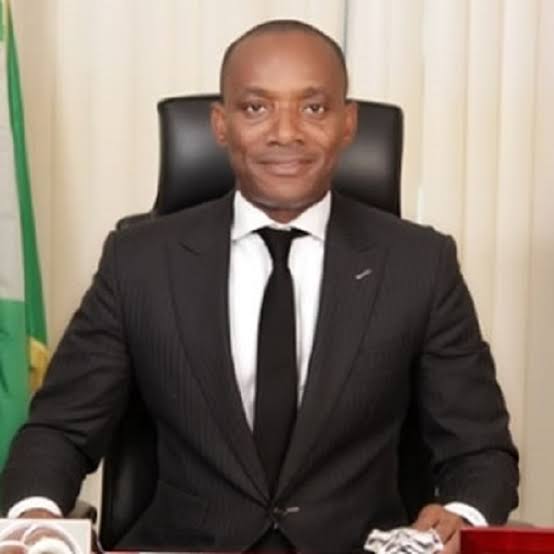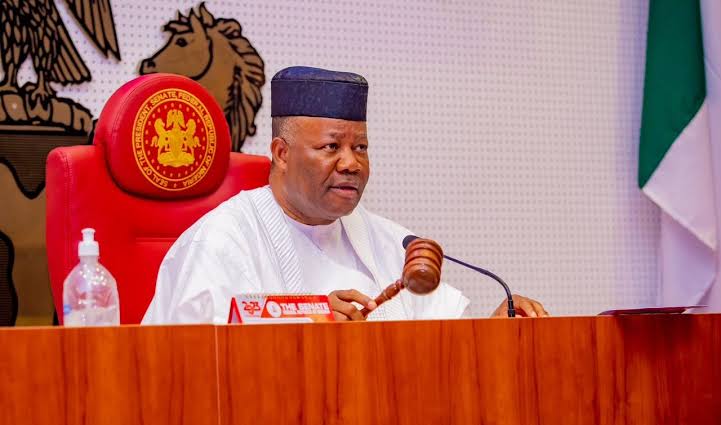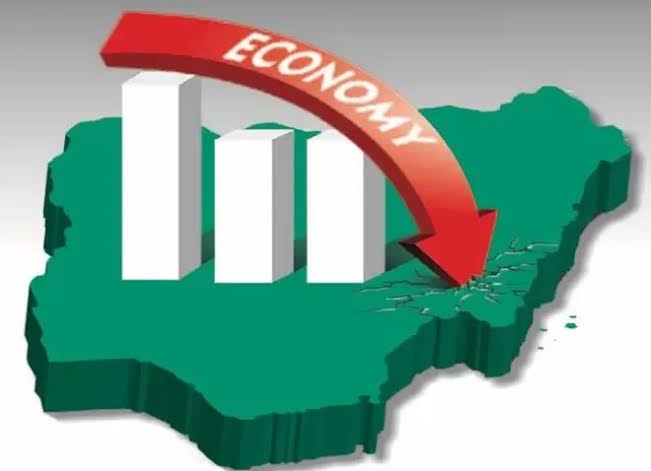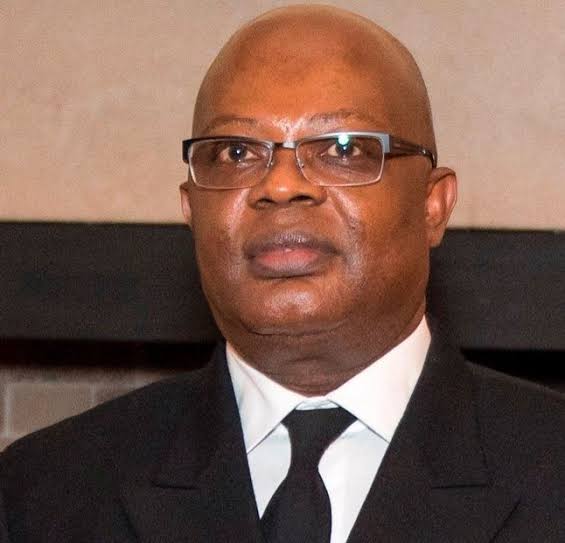The Sunday Back Page Column 13th February 2023 “Global Square” with Dr. Kenneth Okonkwo.
The Supreme Court (SC) is the apex court in Nigeria. It’s the court which takes final decisions on all issues brought before it. Because its decisions are final, it’s a policy making court as its decisions shape society’s social order. Decisions by the SC are only appealable to God. As human beings the judges are incapable of being perfect, but their finality cloths them with the apparel of infallibility. They are not final because they are infallible, they are infallible because they are final, the old saying goes. This enormous policy making responsibility bestowed on this court demands outmost circumspect in carrying out their duties. Any injustice that emanates from the court pollutes and corrupts the entire judicial system and creates a judicial precedent which will plague the society for a long time. Also, because the Supreme Court is the last hope of the common man, any loss of interest and hope on the Supreme Court by the common man may lead to anarchy. The Supreme Court is expected to write justice on black and white to avoid ignorant men writing justice on the ground with blood. It is certain that those who make peaceful change impossible, make violent change inevitable.
It’s to avoid the possibility of anarchy pervading the land that the Supreme Court evolved some principles to guide its rulings and decisions. Over the years, it was discovered that some brilliant lawyers who have clients with bad cases wriggle away with victory for those clients by capitalising on technicalities to defeat the cause of justice. It’s to checkmate this evolving judicial vice that the Supreme Court made it a trite law not to sacrifice justice on the altar of sheer technicality. It stated that “where there is a technical procedural misnomer in the trial of a case at the lower court, an appeal court should not interfere with the decision of the trial court unless it holds the opinion that there is a miscarriage of justice.” SEE CHIME V. CHIME (1995) 6 NWLR (PT. 404) 734 AT 751. “This court in Chime’s case held that where the court can see its way without failure of justice, it can and indeed should endeavour to ensure that the case is decided on its merit and avoid undue leaning in favour of technicality.
The Supreme Court, therefore, concluded that in the pursuit of justices, issues of technicality should not be a hindrance to exercising substantial justices between parties.
When one juxtaposes the principles of law above with the decision of the Supreme Court in Machina’s case, one sees an obvious policy somersault. In this case, Machina won the Senatorial ticket of the All Progressives Congress (APC) in a primary election organised by APC, at the same time that Ahmad Lawan, present Senate President, was contest- ing to become President of Nigeria. Im- mediately Ahmad lost, APC, without organising any other senatorial primary election, declared Ahmad Lawan as a replacement of Machina and submitted his name to INEC. Machina went to court and won the first trial and the appeal. The Supreme Court, in a split decision, ruled against Machina and the two courts below because Machina commenced the suit through originating summons rather than writ of summons because there was an allegation of fraud. Pure technicality. This is even as the practice direction mandates the commencement of the action by originating summons. No evidence that Lawan suffered any injustice by the commencement of the action by originating summons. As a matter of fact, Lawan accepted the judgment of the Court of Appeal and refused to be a party to the suit at the Supreme Court yet the Supreme Court gave judgment for Lawan. Machina described the judgment as an open daylight robbery. We cannot put it in a better way.
As the judgment in Machina’s case was still causing Nigerians indigestion, there came a ruling by the Supreme Court that the deadline for the ceasing of the legal tender status of the old naira has been shifted from the 10th to the 15th of February through an interim order granted on a motion exparte brought by three APC state governors of Kaduna (Mallam el-Rufai), Kogi (Yahaya Bello) and Zamfara (Bello Matawalle) against the policy of their own party and Federal Government. What a confused party! Motion exparte means an application brought by one party only without hearing the other party. The case is on the issue of the naira redesign. Note that the Central Bank of Nigeria is the agency in charge of redesigning the naira subject to approval by the president. The president approved and the CBN carried out the redesigning. The
CBN has conceded to Nigerians that their old notes will still be collected and ex- changed for them even after the deadline for the end of its life as a legal tender. The only difference is that only the bank can accept the old naira from the holder not other citizens. So whosoever is still with the old notes after the expiration of the deadline will lose nothing whatsoever. He will only lose the ability to use the money for illicit reasons.
Note that we are not trying to comment on the case that is pending at the Supreme Court, we are trying to critique, academically, the ruling of the Supreme Court on the matter. The main issue here is whether the Supreme Court has the power by law to even hear the matter. The three states invoked the original jurisdiction of the Supreme Court to file the case. The Supreme Court is an appellate court which ought not to entertain matters except they have gone through trials in the two courts below. It’s in very limited cases that Supreme Court can invoke its original jurisdiction. Section 232(1) is clear that “The Supreme Court shall, to the exclusion of any other court, have original jurisdiction in any dispute between the Federation and a state or between states if and in so far as that dispute involves any question (whether of law or fact) on which the existence or extent of a legal right depends”. The phrase “if and in so far as” simply means that the nature of dispute to be brought to Supreme Court depends on the existence and extent of the legal right of the state in that matter. Note that the legal right of the state is different from the legal rights of the citizens of the state. The state is a legal person on its own right.
By the dictates of the Constitution, the legal right of the state extends only to the matters included in the concurrent list of the Constitution and to all other matters not included in the exclusive list of the Constitution. This is what is called residual matters. The state has no legal right, whatsoever, in whatever is included in the Exclusive List. It’s only the Federal Government that has exclusive legal rights and powers over the matter in the Exclusive List. Indeed, the state is forbidden to use its legal rights and powers to impede or prejudice the smooth operation of the exercise of the legal rights and powers of the Federal Government in matters existing in the Exclusive List. (Please see Section 5(3)(a) of the 1999 Constitution as amended). For the avoidance of doubt, item 15 of Part 1 of the Second Schedule to the Constitution clearly puts the issue of currency, coinage and legal tender on the Exclusive List within the exclusive powers of the Federal Government to execute. The state governments have no legal right or power over it. They do not have the right, therefore, in law, to take the Federal Government to the Supreme Court and invoke the original jurisdiction of the court on this matter, as the issue of currency, coinage and legal tender is not an issue on which the existence of their legal right depends.
We dare say that the state governments and their Attorneys even know that they don’t have the legal right in this matter to invoke the original jurisdiction of the Supreme Court and that’s why they cunningly refused to add the CBN, which is the main agency of the Federation in charge of the policy on currency, coinage and legal tender, and as such a necessary party, to the suit, as this would have immediately exposed their lack of legal right to sue the CBN to the Supreme Court and ex- posed the apparent lack of jurisdiction by the Supreme Court to entertain it. Without adding a necessary party to a suit, no order can be issued against the party and this might rob the court of jurisdiction. They cannot hide under the connotation that their citizens are suffering hardship owing to the policy to approach the Supreme Court for adjudication. It is the legal right of any Nigerian citizen to approach the law courts of first instance to seek redress from the harshness or illegality of any law or policy of any government against him, not the state going to the Supreme Court on their behalf.
The Federal Government is under a duty to abolish all corrupt practices. Even if the intention of the Federal Government is to use the policy to prevent vote buying, it’s still a commendable policy. What every Nigerian should be interested in is not the deadline, but that the FG and CBN should make available sufficient new naira notes for the people to carry on their businesses without distortions to their daily lives. Considering how the Chief Justice of Nigeria has hammered the lower courts on the abuse of ex-parte orders, one would have thought that the Supreme Court would have borrowed a leaf from its own policy of non-abuse of ex-parte orders by the lower courts. This is an un- necessary policy somersault not needed at this critical time of our elections. In my humble view and with utmost respect to the Supreme Court, I submit that in addition to not having original jurisdiction over the subject matter of the dispute, the court even lent itself to be used as an instrument by these errant APC governors to impede and prejudice the smooth operation of the powers of the Federal Government which is another arm of government. It’s a breach of separation of powers and should be vacated immediately with serious reprimand to the governors.










